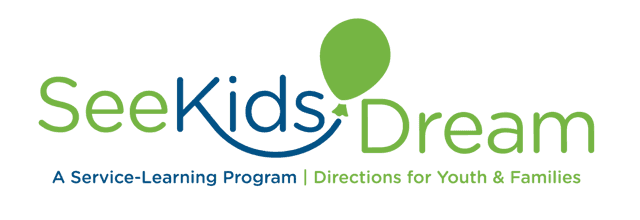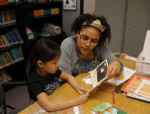Research Hub
Literacy
What is literacy?
Literacy is the ability to read and write and to use those skills to understand, communicate with, and function in the world around you. You may have heard of the term illiterate. This describes the opposite situation…when a person is not able to read or write. A person can also have some ability to read and write, but their skills fall below basic reading levels, meaning that they are not able to use their reading or writing skills to function in all parts of life. According to a recent study done by the U.S. Department of Education, 14% of adults in the United States cannot read and 20% cannot read at a basic level. That same study showed that 19% of high school graduates also cannot read.
Why is it important to be able to read and write?
One of the biggest reasons that literacy is important is that it helps a person to get a good job. Nearly all jobs that pay well enough to earn a decent living require a basic or higher level of reading and writing. A person with little or no reading and writing skills will usually have more limited job opportunities that pay lower wages. Another very important way that literacy affects a person is in their health. Research completed by the California Health Literacy Initiative has shown that if you struggle with literacy, you are more likely to suffer poor health. This is due to the fact that a person who has below basic reading skills may be unable to complete their medical paper work accurately, unable to read their doctor’s orders, or unable to read the instructions on their medications. Sometimes this has even resulted in deaths because the person delayed getting needed medical help or did not follow instructions after leaving a hospital. There are countless other ways that basic reading skills are needed in order to live daily life, here are just a few examples: to be able to read a food label; to read a contract to buy a house or lease an apartment; to read important information that comes home from school; or to know when or how much to pay on a utility bill. Because reading is currently one of the main ways that our society communicates information, when a person struggles to read and write, unfortunately, they will also struggle in many other parts of life, unless they are able to get help.
Who is affected by illiteracy?
Illiteracy or having below basic reading skills is a very common problem that affects people of all communities, ages, races, religions, and socioeconomic backgrounds. Because it is so common and because people who struggle with literacy often feel embarrassed to reveal their problem, it is very possible that without realizing it, you may know an adult or teenager who is one of the people struggling with basic literacy skills today.
Why does it happen?
There is a lot of debate about why so many people struggle to gain literacy skills. While there are still not enough answers to this question, some answers are beginning to come. Some people struggle with reading because they have a learning disability called dyslexia. Research done by Yale University’s Institute for Dyslexia and Creativity has shown that people with dyslexia actually use their brain in a very different way when they attempt to read, and for this reason, regular reading programs do not work for them. Using this information, researchers have been able to develop specialized ways to successfully teach reading to many people with dyslexia. Many experts believe that others struggle with learning to read because of a cycle that starts when a parent does not have basic literacy skills. Without basic literacy skills, a parent will be less likely or unable to read books to their child or to help them with reading homework. This can put the child at a disadvantage for learning to read and doing well in school. If that child grows into an adult who was not able to gain basic literacy skills, then the cycle may start over again when that person becomes a parent.
Aren’t books and things made of paper becoming a thing of the past?
Actually, yes… and this may become an advantage for people struggling with basic literacy. While it will likely always be an advantage to know how to read and write, technology can and already does do some of the reading and writing for many of us every day. Digital books are read aloud to a listener. Spell checkers suggest a word when we’ve misspelled something. And you can even tell a smart phone or a computer what you want it to do, instead of typing in a command. As technology continues to advance, this may help to significantly reduce the struggle that people face with illiteracy…as long as they have access to technology.



